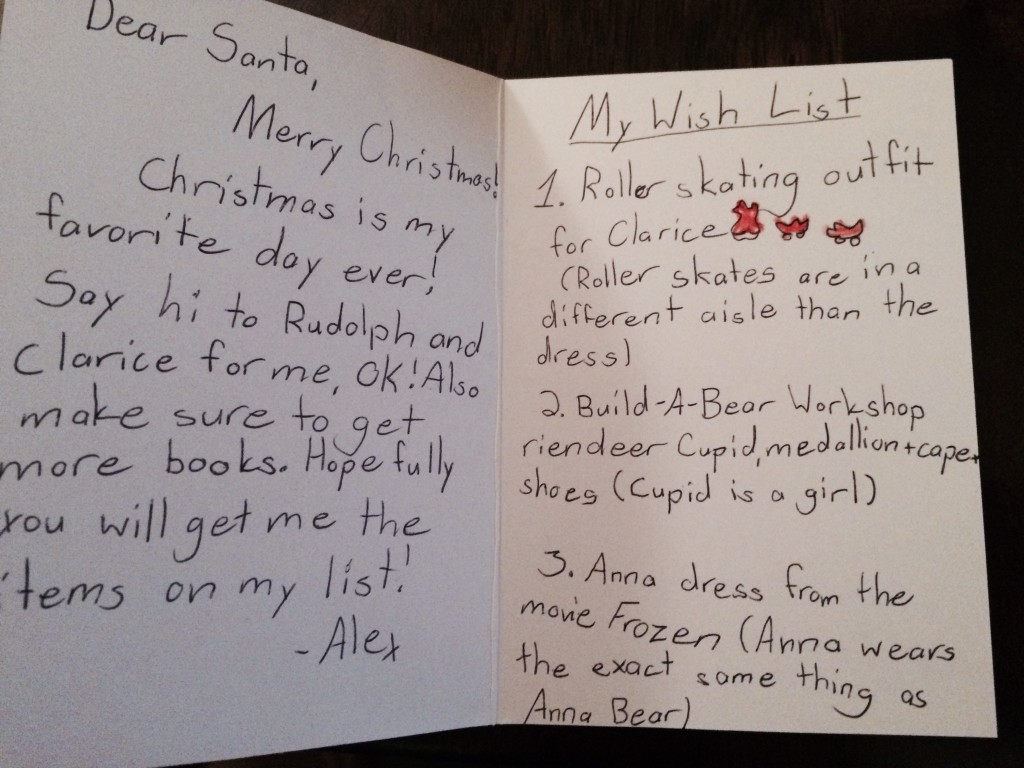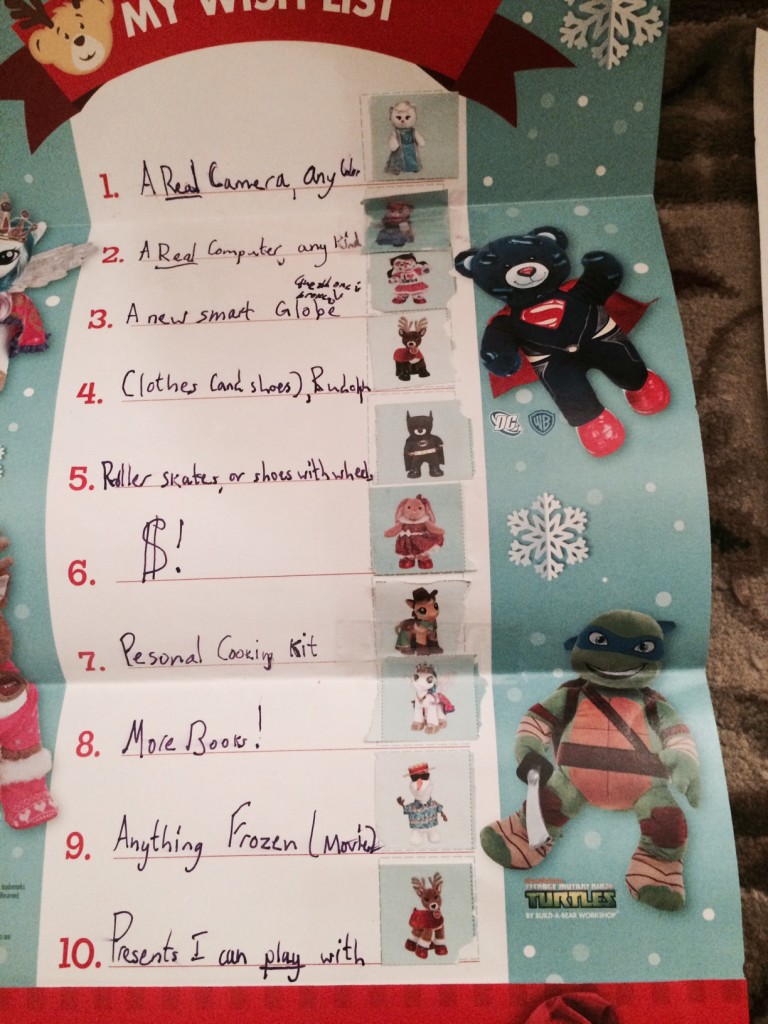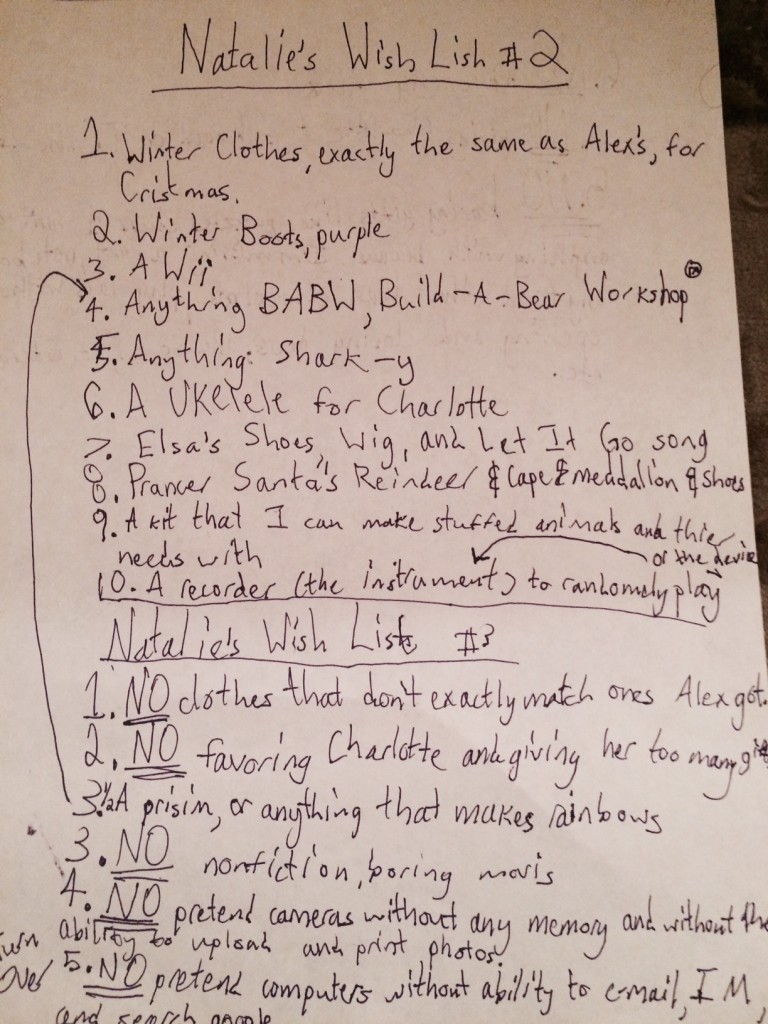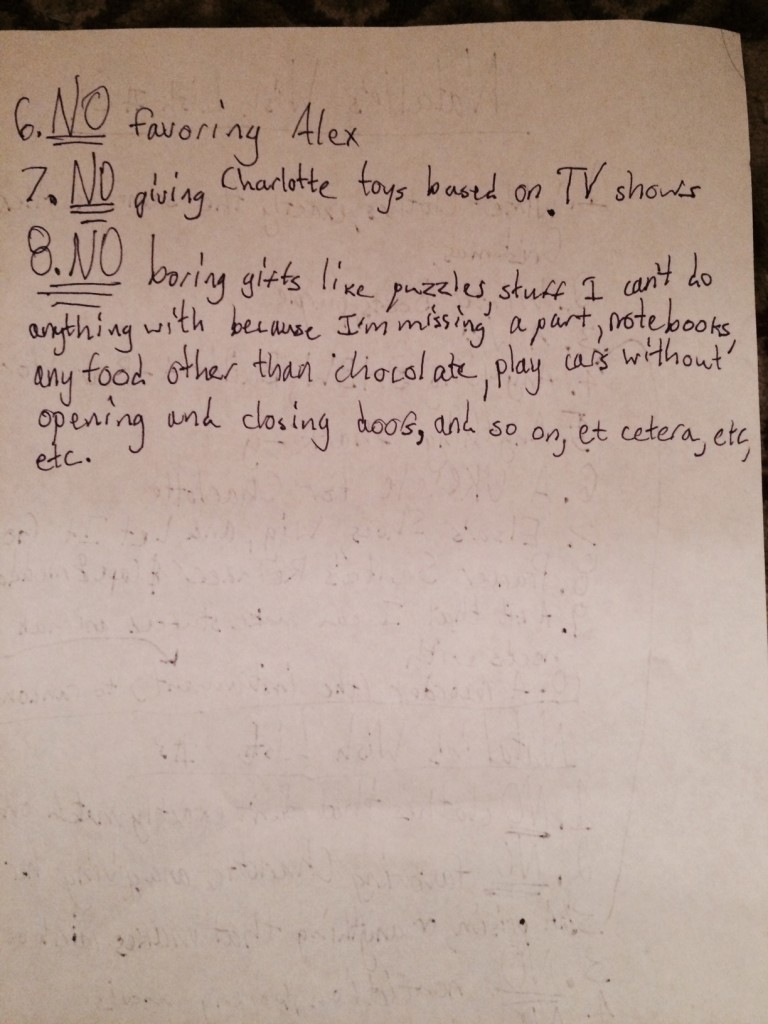I wrote the below three Christmases ago for “Parentlode” at the Huffington Post. My twins were on the cusp of Kringledoubt. I expected, when I wrote this, that by now, at ten years old, the Santa expiration date I talk about would have long past. It has not. I post their Christmas lists at the end.
**
Santa Claus has an expiration date. Every parent who has introduced Santa Claus to their kids knows this. You get a few good years and then the doubts start creeping in. Other kids at school are usually the catalysts in this process, which seeps through school lunchrooms with the first signs of frost every year. Usually it’s the hand-me-down scoffings of older siblings. Sometimes, however, it’s an axiom discovered through a child’s deduction alone.
This first crack in the Santa-myth came from one of my seven-year-old twins. This girl, who has long shown a Clarence Darrow-like gift for argument, stumbled into her discovery in the way most discoveries are made: through a process of self-justification.
“You want to know what’s a fairy tale about Santa?” she said the other night at dinner. I held my breath waiting for the answer. “It’s that you have to be good. You can be naughty and he’ll still bring you presents.”
Hmmm. Where is she going with this?
She pointed to her baby sister who, at 10 months old, does a lot of what 10-month old babies do.
“She’s naughty all the time,” the seven-year-old rationalized. “She pulls stuff down off the table, she rips papers, she makes a mess. But Santa’s still going to bring her presents. So it doesn’t matter if you’re good or not.”
The back story, as if it’s not transparent enough, is that the older sisters know very well they’ve indulged in some rocky behavior over the past few weeks. Locking arms with their baby sister as they come up for judgement is a brilliant political move. It’s also a sign that their capacity for reason has developed enough to irreparably undercut the whole foundation of Santa Claus.
From here the questions will only multiply. What’s the use of being good for goodness’ sake if you get the same gifts no matter what you do? If that part of the story is untrue, can Santa really see you when you’re sleeping? Does he actually know when you’re awake? What can we really know about this jolly old elf?
And if we can’t believe any of that, who’s responsible for telling us this stuff is true?
My husband dodged the critical question just the other night. The other twin came to him with a homework problem. She had to read a book, answer some questions about it and draw a picture to illustrate her favorite part. The book she chose was a beautifully illustrated edition of Clement Moore’s “Twas the Night before Christmas.” My daughter really loves this book, but she got stuck on her homework sheet when it asked her, simply enough, if it was fiction or non-fiction. She came to him for the answer. He responded by suddenly having to go to the kitchen to start dinner.
I would have done the same.
That was not our finest hour in the annals of parenting.
Santa Claus is that first lick of a candy cane. He’s the way kids whisper at the top of the stairs early Christmas morning. He’s the warm hug they get in front of a newly decorated tree. He’s everything we envision a happy childhood to be. I remember that magical moment of first opening my eyes Christmas morning, and giddily jumping out of bed in anticipation.
Ending that is nothing to take lightly. The fact that it will end, at least in its most bare prosaic sense, is unavoidable.
The timing is critical. As every parent knows, one child’s reality must be calibrated around a younger sibling’s fantasy. My youngest daughter is coming into her first Christmas. It’ll take a couple years for Santa to take hold in her mind. Once he does, she won’t need a pair of pre-teen sophisticates spoiling her fun. From the first moment she can sit on Santa’s lap and not scream in terror, her sisters have to be conscripted into the cause, as I was for my five younger siblings.
Kids need critical thinking skills. I want my daughters to question what they’re told, to grow into adults with the ability to think things through on their own, including what religion, if any, they choose to follow. This is the skill I see born in that one doubt about Santa discerning naughty from nice. We will talk in depth one day about religion. This both scares and excites me. They have been exposed to my Catholic in-laws, my father’s family Protestantism, my mother’s family Judiasm, and my own secular humanism, so there is a lot to talk about.
Of course, the full utility of the Santa myth isn’t limited to the man in the red suit. The simple lesson of rewarding good behavior over bad lays out clear choices for developing minds. My daughter wasn’t really looking to shatter the iconography of Christmas. She was looking to excuse some of her own behavior and relying on the kindly figure of Santa Claus to forgive her transgressions and reward her with toys.
Stripping away the icon of Santa altogether would mean she’d have to account for herself before the less idealized figures of myself and her dad.
When the process of doubt erodes our fairy tales, we learn to learn doubt itself.
***
Since that time, we have discussed religion. They have asked what I believe, and more specifically, what I do not. I tried to absorb the lessons from the essayists in “Parenting Beyond Belief” as I explained to the twins that I believe people can be good without a god. They hastily agreed. But they have, somewhat to my dismay, stopped questioning Santa. True to the personalties of each twin – the first straightforward and the second (the Clarence Darrow disciple discussed above) pointed, complex and specific – I got these lists this year:




They have been deflecting any questions I have begun to ask about the specifics of Santa, as if they were regressing in their critical thinking. “It’s fun to believe,” one twin said. “Don’t ask too many questions,” the other said. I did ask if other kids in their class (most of whom are older) talked about Santa. They said their friends do not believe there is a Santa, but that is okay. So we wait another year.

